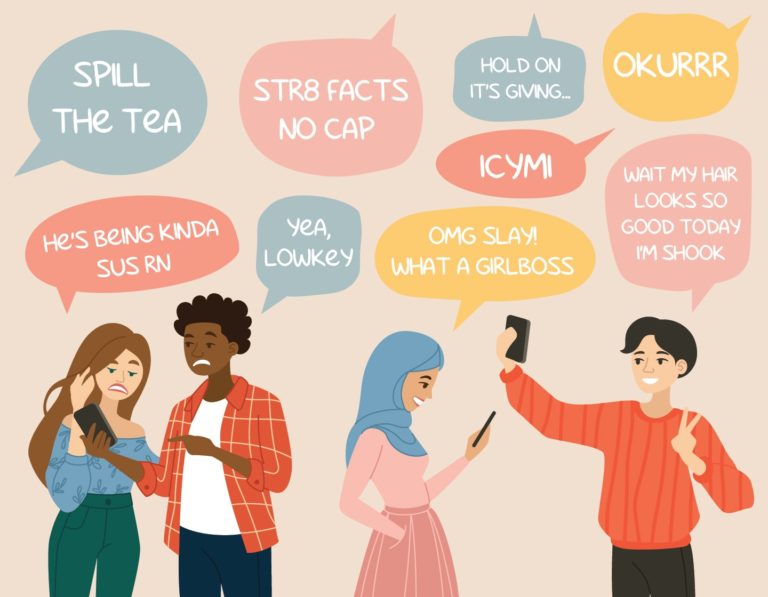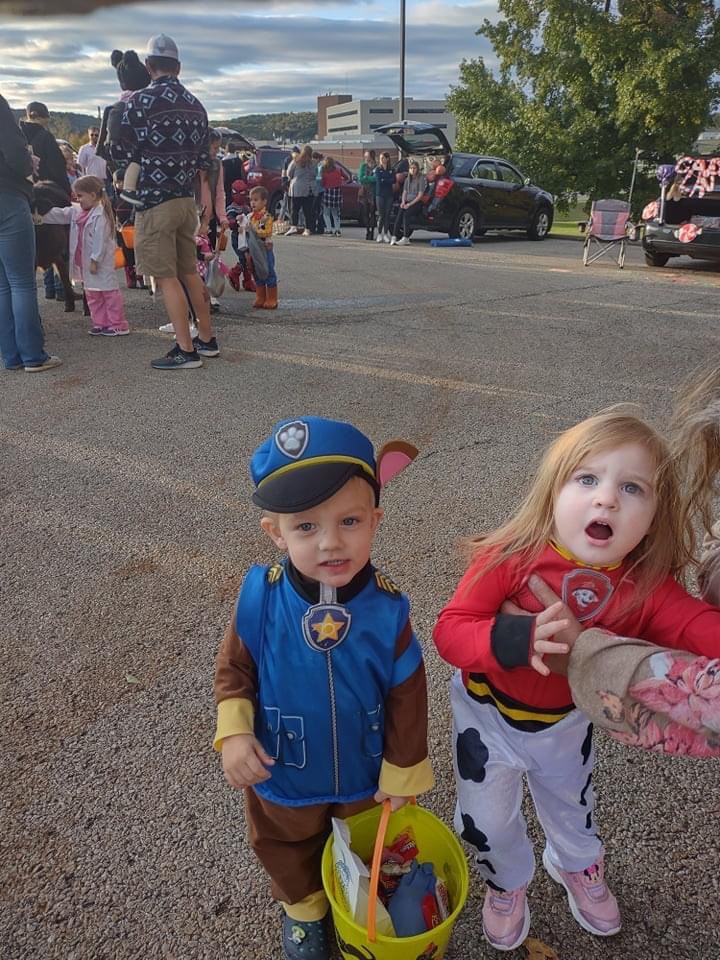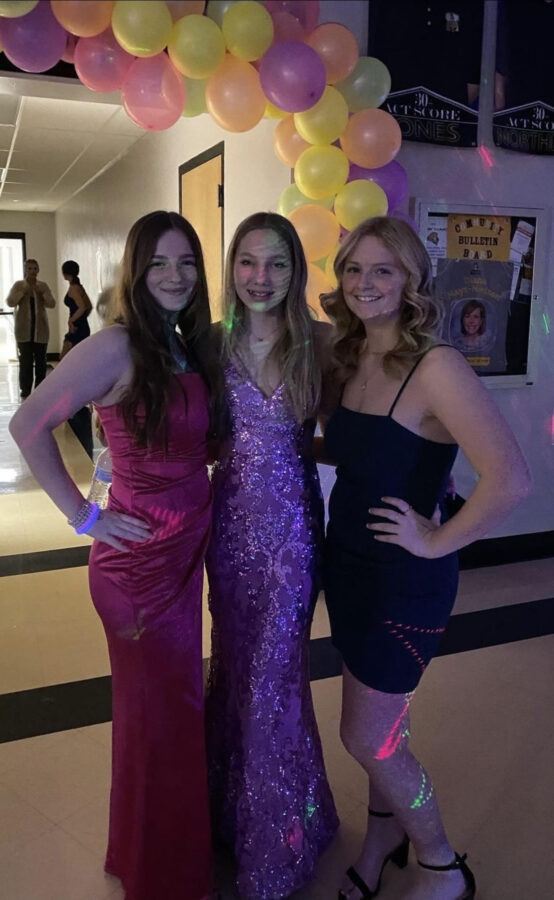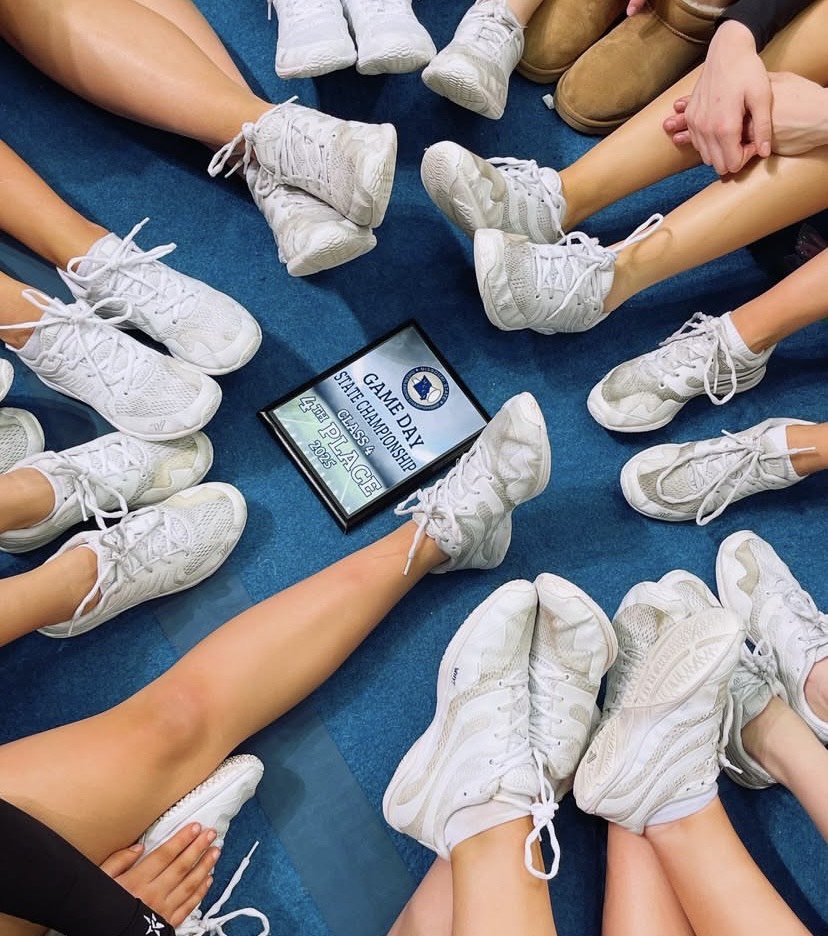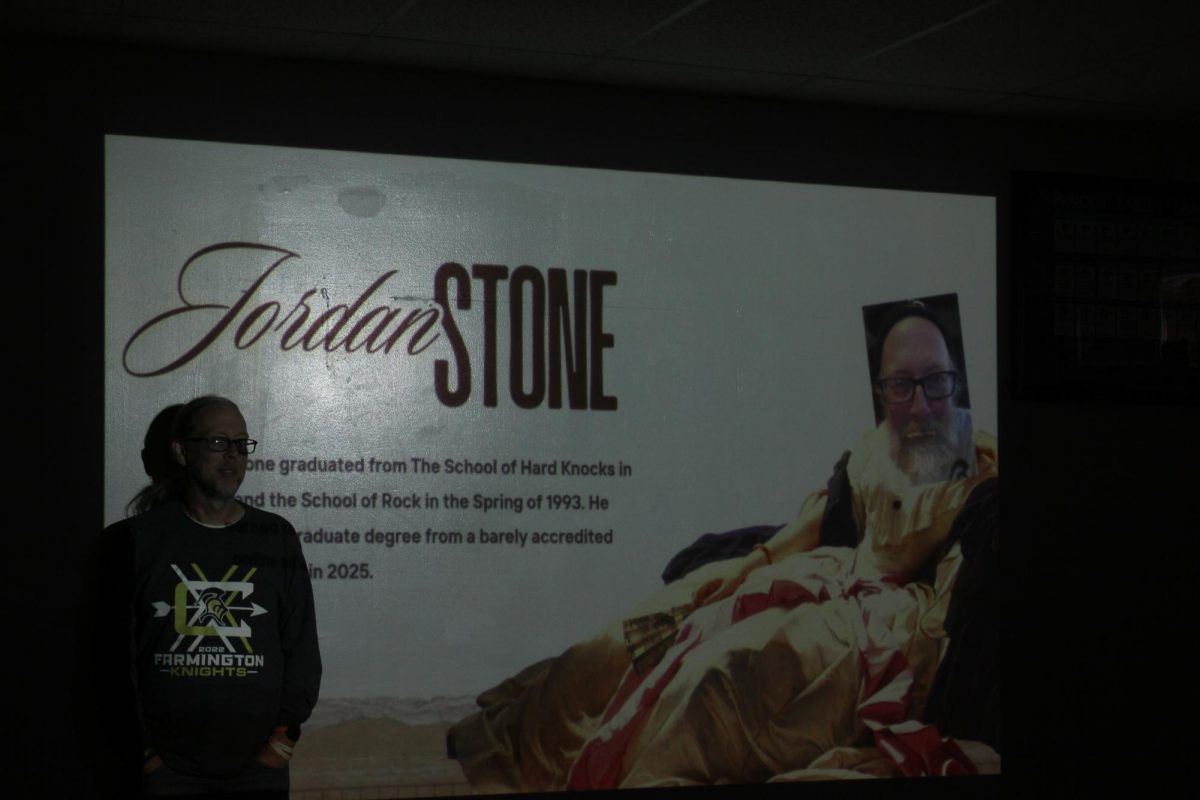In 2023, teenagers’ vocabulary mainly consists of slang or informal language. Teens use slang when addressing friends, peers, and their authority figures. According to Preply, the use of slang has doubled nearly 10% in the last two years. As we dive into the world of slang, we can see how different age groups view the increase in slang usage.
Farmington High School sophomore, Corbin Hafley, expressed his thoughts to better understand the teenage perspective on slang usage.
Corbin said slang takes up about 10% of his daily vocabulary.
“It makes it easier for me to talk and express my feelings about certain things.”
Halfley believes certain slang words reflect how energetic and passionate he is as a speaker, so he can be quick and fast-paced when he is talking.
Some teachers use slang, too, and although they might be older and it might seem odd to some students, Corbin is not one of them.
“It’s fine, it’s up to them if they use it or not, as long as they use it correctly.”
Corbin’s most-used slang words are cuh, bruh, and bro. These are common terms of endearment for addressing one’s peers or friends.
Gracleyn Fambrough, also a sophomore at FHS, uses slang words daily.
“It adds a little spice to what you’re saying, and it’s a little fun at times,” Gracelyn stated, regarding why she uses slang.
Some of the slang words that Fambrough uses frequently are FR, beef, and rizz.
‘FR’, an abbreviation of the phrase ‘for real, is used when expressing an agreeance with a topic. ‘Beef’ is commonly used among teenagers to describe a conflict. Finally, rizz is an abbreviation of the word ‘charisma’ and is used to describe someone charming.
Gracelyn believes that using slang when addressing authority figures and educators is a sign of disrespect.
“I don’t think that students should address their teachers using slang because a lot of the time they don’t know what it means, and it doesn’t show respect,” she said.
To gain another perspective on slang usage, FHS Band Director, Elliot Naes, discussed the consistency of slang throughout his lifetime.
“I graduated from high school in 2008,” Naes said. “During that time, some of the most popular slang terms were “noob” which referred to someone new at something, “baller” which was used to describe someone good at basketball or to say that something was good, and “bromance” which meant two male friends who were very close to each other.”
Elliot then went on to describe the rebellious nature of slang usage.
“It has always been associated with extreme behavior in teenagers,” Naes explained. “This is because it is a natural part of growing up and maturing.”
Bailey Sipp, a Generation Z English teacher at FHS, explained that using slang is only appropriate in the right context.
“I suppose it depends on the context and the type of slang being used. For instance, using vulgar words is generally not appropriate,” Sipp said. “However, sometimes slang can be used as a term of endearment. I understand a lot of slang because I’m not much older than my students, and I also use slang myself. It’s just a way of showing affection.”
Sipp stated that the slang words used now are similar, if not the same, to the ones she grew up hearing and using.
“The phrase ‘Gucci’ or its variations such as ‘its mint,’ ‘it,’ ‘dope,’ ‘boots,’ ‘fire,’ and ‘flex,’ used to be popular slang terms,” elucidated Sipp. “Although they are still used today, they are not as common as they used to be. “In a minute” is another term that was gaining popularity.”
All in all, slang words have been passed down for generations. It is important to use slang words in the appropriate context and show others respect. Our words matter, so choose them wisely.

